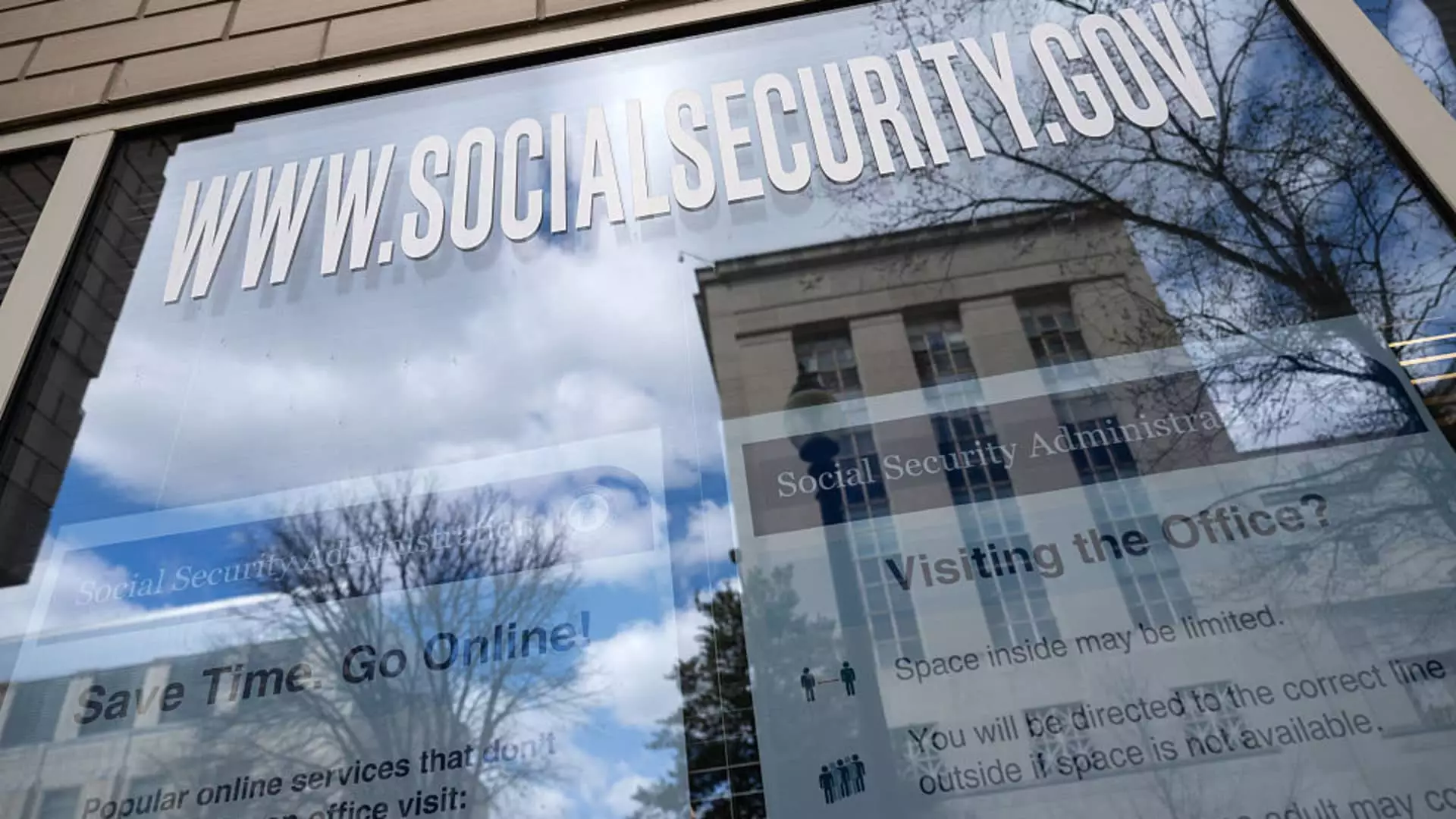In an era when millennials and Gen Z face unprecedented economic challenges, the revelation from the Social Security Board of Trustees that the funding trust will run dry by 2033 should send shockwaves throughout the nation. This alarming forecast is not merely a statistic; it represents the potential abandonment of millions who depend on these benefits to secure their futures. If you ever thought that Social Security was an untouchable ally, reconsider now. The fact that a mere 77% of benefits will remain payable by the time the trust is depleted is a harbinger of a looming socio-economic calamity.
This depletion date was fixed without variation from the previous year’s estimates, indicating that no remedial actions are currently underway. Not only does it expose the inherent vulnerability of our social programs, but it also raises uncomfortable questions about our collective priorities as a society. Why has legislative inaction become the norm while future generations face what could be an existential crisis?
The Uncertainty of Fiscal Responsibility
Ironically, while the deficit of the Social Security trust fund garners headlines, another significant conflict looms. Critics would argue that the government has taken a cavalier approach to fiscal responsibility. The decision to keep the Old-Age and Survivors Insurance Trust Fund and the Disability Insurance Trust Fund separate leads to dire consequences when financial shortfalls arise. While Congress has previously authorized transfers under critical circumstances, the way we isolate these funds might prove catastrophic under worsening economic conditions.
Additionally, the current tax assessments—6.2% for Social Security and 1.45% for Medicare—might not be sustainable in a world where real wages fail to keep pace with inflation and economic growth stagnates. With self-employed individuals carrying a staggering 15.3% tax burden, it’s evident that the current financial framework is taking a toll on a pivotal segment of our workforce. Is it fair to expect so much from so few?
Political Posturing over Substance
Both Democrats and Republicans are entrenched in a contentious debate over appropriate solutions to shore up the program. The divide grows deeper each day, with partisanship stifling meaningful discourse. The potential for tax increases or benefit cuts incites public fear, yet recent polling reveals that a staggering 85% of Americans prefer raising taxes over slashing benefits. This sentiment echoes the voices of constituents who have invested their hard-earned dollars into a system now veering towards insolvency.
If we accept that social welfare is a societal obligation, why is Congress so reluctant to take actionable steps that align with public sentiment? The proposal of lifting the payroll tax cap so that those making over $400,000 contribute fairly would not just address the immediate funding crisis; it would foster a sense of shared responsibility. While financial markets can be volatile, our commitment to societal welfare should be steadfast.
The Grim Future of Medicare
As if the fate of Social Security weren’t alarming enough, the Medicare system is set to deplete its funds even sooner—by 2033. The callous reality is that nearly 89% of benefits could be unpayable, leaving an aging populace to grapple with an unforgiving healthcare landscape. Are we prepared to witness the erosion of a program that has become a lifeline for millions? Despite the pressing danger, discussions around reform have been relegated to the back burner amidst bureaucratic squabbling, effectively pushing this issue down the road.
The intersection of a growing elderly population and a crumbling safety net presents a moral quandary. We are faced with the dilemma of whether to prioritize profits over people. As more Americans age, the topic of Medicare’s stability becomes paramount. The adults who built our economy, our parents and grandparents, risk being marginalized while lawmakers play a dangerous game of political chess.
A Call to Action
It is abundantly clear that we must advocate for transparent policymaking that prioritizes the needs of those who have contributed to these programs throughout their lives. The challenges facing Social Security and Medicare are not merely financial crises; they are social justice issues that affect the backbone of our society. We must demand a robust discussion that fosters innovative solutions while eschewing the blame game. It is incumbent upon us to hold our elected officials accountable and urge them to prioritize the well-being of millions who depend on these crucial programs.
Change is essential. The time for transparency, honesty, and effective governance is now. The survival of Social Security and Medicare is not just a political issue; it is a moral imperative. If we allow complacency to prevail, we not only fail today’s retirees but also jeopardize future generations who deserve better stewardship of the programs they will rely on. The reality is stark: America’s safety net is in a precarious state, and it is up to us to act before it unravels completely.

